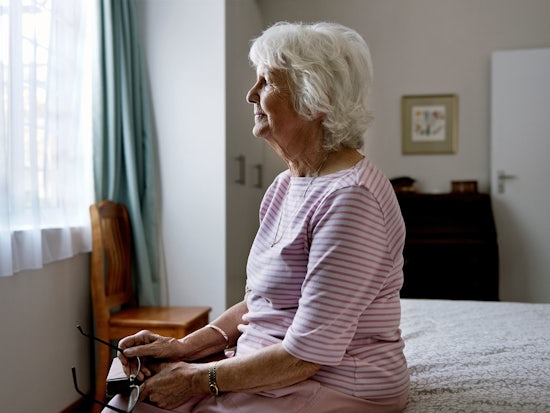Elder abuse discussion paper sheds light on hidden problem
An online national register for enduring documents, and tighter witnessing and reporting requirements, are just some of the recommendations included in Australian Law Reform Commission (ALRC)’s Discussion Paper for its Elder Abuse Inquiry.

A discussion paper about elder abuse includes a number of recommendations designed to help preserve and protect the rights of older Australians (Source: Shutterstock)
Released this week, the Discussion Paper includes 43 proposals for law reform. Other key proposals concerning powers of investigation for public advocates and public guardians, enduring powers of attorney and enduring guardianship; family agreements, banking, aged care and social security include:
- expanding the role of public advocates and public guardians in responding to elder abuse
- requiring banks to take reasonable steps to prevent financial abuse
- allowing tribunals to hear disputes within families about assets-for-care arrangements—providing a low cost and less formal forum for dispute resolution
- for aged care, strengthening the compulsory reporting scheme by providing for independent oversight of complaints of abuse, enhancing employment screening processes, and the introduction of an official visitors scheme.
Council of the Ageing (COTA) says it hopes the release will kick-start a much needed public conversation about this significant and too often hidden problem in modern Australia.
Mr Ian Yates, COTA Australia Chief Executive says starting uncomfortable conversations about the prevalence of elder abuse was a first step to reducing it. “This discussion paper will be extremely useful in kicking off what is for many people a difficult conversation. Be under no illusion – elder abuse is happening in your community,” he says.
He highlights behaviours people would normally find completely unacceptable are too often routinely experienced by older Australians. He says the most common is financial abuse, which we should call theft, psychological abuse, which we should call harassment and physical abuse, which we should call assault and sometimes battery.
“Too often abuse is an outcome of the legal system designed to prevent it – powers of attorney and guardianship which are themselves misused to hide criminal behaviour. Criminal behaviour that is in no way excused or diminished because it is within family,” Mr Yates says.
He believes the recommendations in the discussion paper are an important and comprehensive set of proposals that deserve serious and widespread discussion and debate.
“Specific measures from the discussion paper may need fine-tuning and further consultation but overall they represent a very credible and considered set of proposals to tackle the insidious trend of elder abuse in Australia.
Last month, Aged & Community Services Australia (ACSA) released its official position paper on elder abuse, which included a number of recommendations designed to help preserve and protect the rights of older Australians. These included the implementation of a consistent national approach to powers of attorney and guardianship and improved access to information online (with a particular focus on the My Aged Care portal).
ACSA, CEO Pat Sparrow says there are a number of common themes across the ALRC and ACSA papers, and says ACSA supports the Federal Government’s broader commitment to developing a national plan to protect the rights of older Australians and is prepared to work closely with the Government in both the development and implementation phases of this plan.
However, she feels some of the ALRC paper’s recommendations, such as increasing employment screening processes, needed further consideration. “While we understand this issue being raised, there are already checks and balances within the aged care regulatory system and within individual organisations’ employment practices, such as police checks, accreditation and the Complaints Commissioner, to protect residents and clients,” she says. She says we would want to see the evidence that any increased screening requirements would provide additional protection and not just create a greater administrative burden.
“It’s only through a coordinated approach, with buy-in from the community, government, industry and all other stakeholder groups, that we can truly combat the underlying causes of elder abuse and ensure that older Australians are treated with the respect and dignity they deserve,” she says. “ACSA stands prepared to play its part in helping rid society of this scourge.”
The ALRC invites submissions in response to this Discussion Paper, which is available free of charge on the ALRC website.
Submissions are due to the ALRC by 27 February 2016 and the ALRC final report will be presented to the Attorney-General in May 2017.











![The new Aged Care Act exposure draft is slated for release in December of 2023, but advocates hope to see it rolled out on January 1, 2024. [Source: Shutterstock]](https://agedcareguide-assets.imgix.net/news/articles/wp/agedcareact__0811.jpg?fm=pjpg&w=520&format=auto&q=65)












Comments